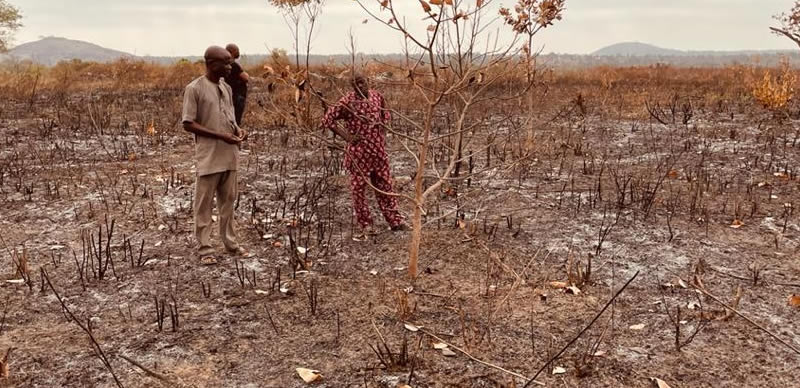The Plight of Cashew Farmers in Kogi State: A Cry for Government Intervention Against Exploitative Foreign Buyers
Cashew farmers in Kogi State, Nigeria, are facing a dire situation as foreign buyers, predominantly from India, disrupt the established cashew value chain, posing a significant threat to their livelihoods and the local economy. These foreign entities bypass local merchants, purchasing cashews directly from farmers at unfairly low prices, thus exacerbating poverty and fueling insecurity in the region. The Kogi Cashew Dealers Stakeholders Association (KCDSA) has issued an urgent plea to both the state and federal governments to intervene and protect the interests of local farmers and traders.
The KCDSA argues that the direct engagement of foreign buyers with farmers distorts the cashew trade, deprives local merchants of their rightful role in the value chain, and ultimately undermines the economic well-being of the farming community. This practice has persisted for over three decades, raising concerns about a "new form of colonization" where foreign interests exploit local resources without contributing to the development of the local economy. The association emphasizes the need for foreign buyers to adhere to established trade practices and collaborate with local merchants rather than circumventing them.
The chairman of KCDSA, Baba Mohammed, highlights the detrimental impact of this foreign interference on local farmers, asserting that it pushes them deeper into poverty. He questions the apparent impunity enjoyed by these foreign buyers in Kogi State, contrasting it with other cashew-producing regions like Ogbomoso in Oyo State, where such practices are reportedly not tolerated. Mohammed underscores the urgency of government intervention, calling on the Kogi State government, the Federal Government, and the Ministry of Agriculture to take decisive action to halt this exploitative trend.
Idris Yakub, the Vice Chairman of the KCDSA, echoes these concerns, pointing out that foreign buyers are effectively displacing local merchants, manipulating prices, and shortchanging unsuspecting farmers. He explains how farmers, often unfamiliar with market dynamics and the nuances of international trade, are easily misled by these foreign entities, believing they are receiving better prices for their produce when, in reality, they are being exploited. Yakub emphasizes the existence of a federal policy prohibiting foreign buyers from engaging directly with farmers, a policy implemented during President Muhammadu Buhari’s administration, yet inexplicably ignored in Kogi State.
The KCDSA stresses that the repercussions of these unchecked foreign activities extend beyond economic hardship, contributing to insecurity within the state. The farmers, deprived of fair compensation for their crops, become vulnerable to criminal activities and social unrest. The association’s chairman, Mohammed, revealed that the Kogi State House of Assembly has taken cognizance of the issue and fast-tracked a motion directing the Ministry of Agriculture to intervene. He expressed optimism that the government will respond swiftly and effectively to safeguard the interests of local farmers and ensure the cashew industry contributes positively to the state’s economy.
The KCDSA clarifies that they are not opposed to foreign investment in the cashew industry, but they insist that such investments must be channeled through the proper value chain. Foreign buyers should collaborate with local merchants, adding value to the local economy rather than simply extracting raw materials for export. They call upon both the state and federal governments to enforce existing regulations and prevent what they perceive as a potential takeover of the cashew trade by foreign interests. The plight of Kogi State’s cashew farmers underscores the need for government intervention to protect local livelihoods, ensure fair trade practices, and promote sustainable economic development in the region. The association’s plea for intervention represents a critical moment for the Kogi cashew industry and the future of the farming community it supports.


